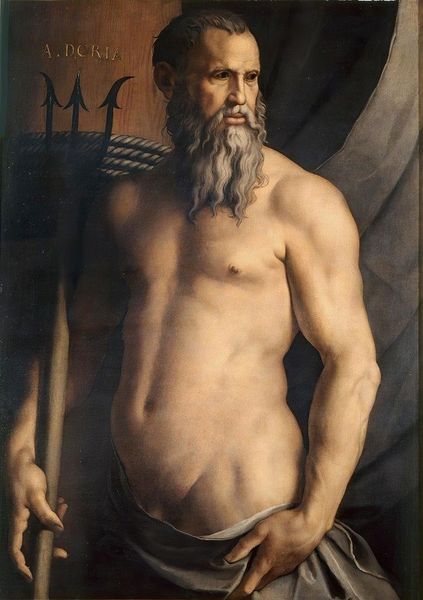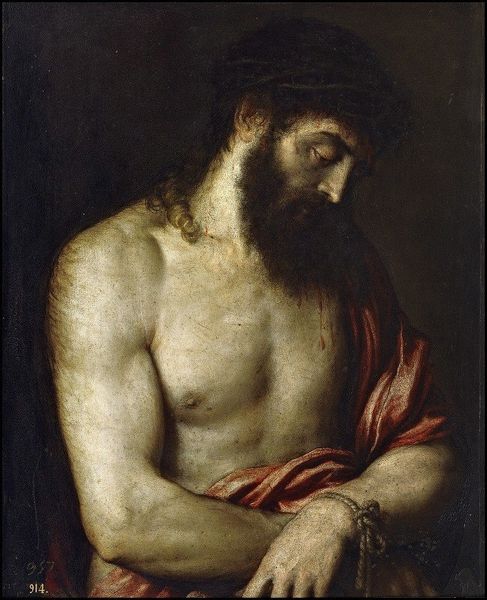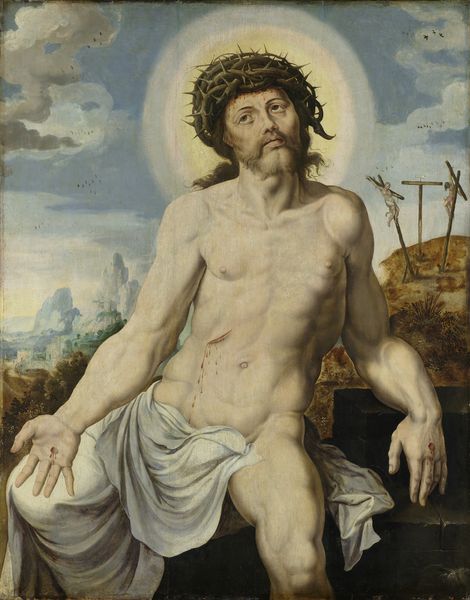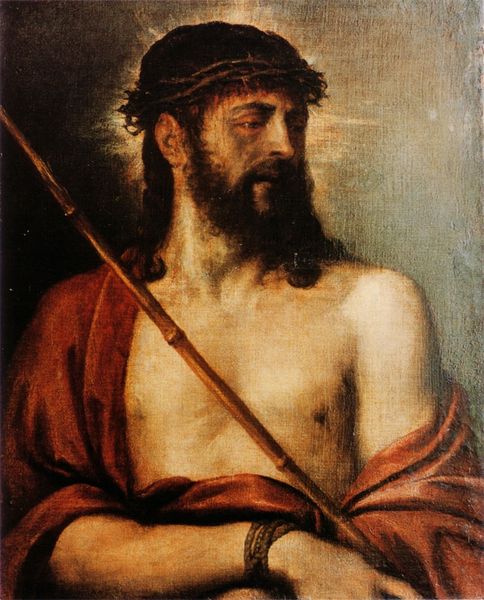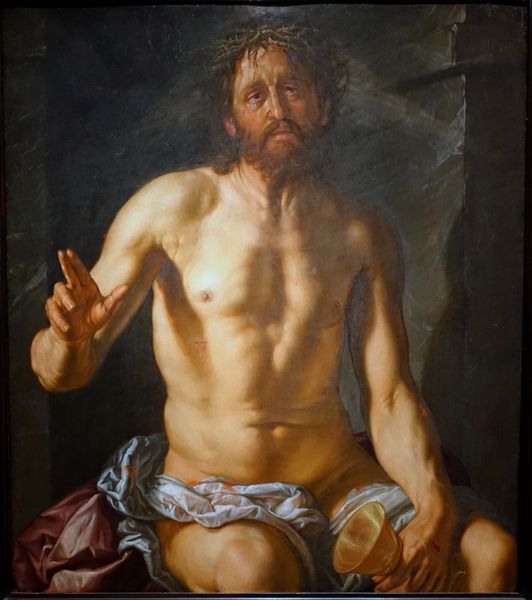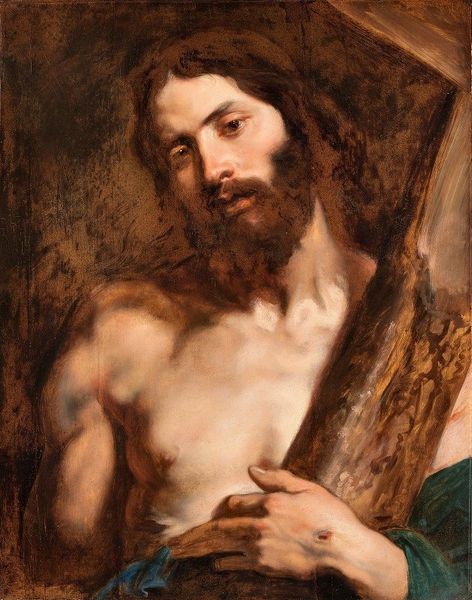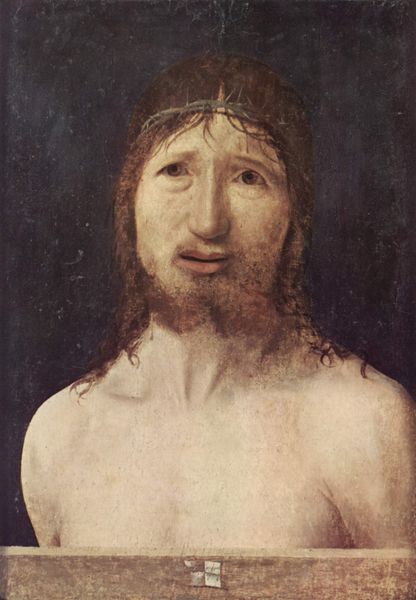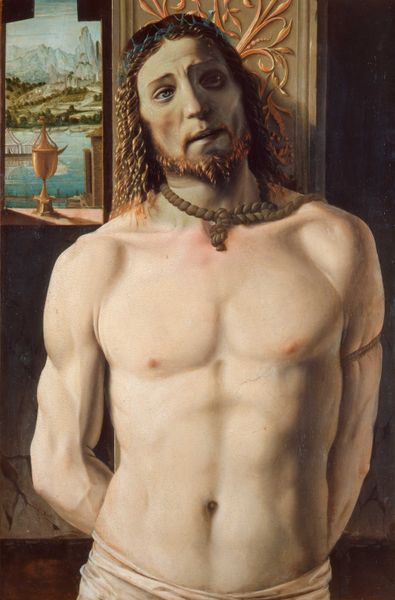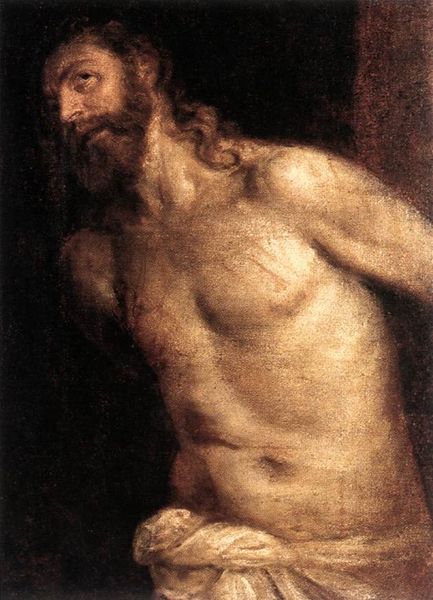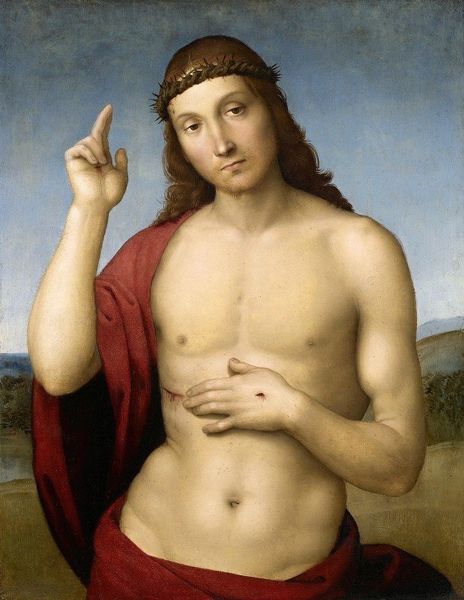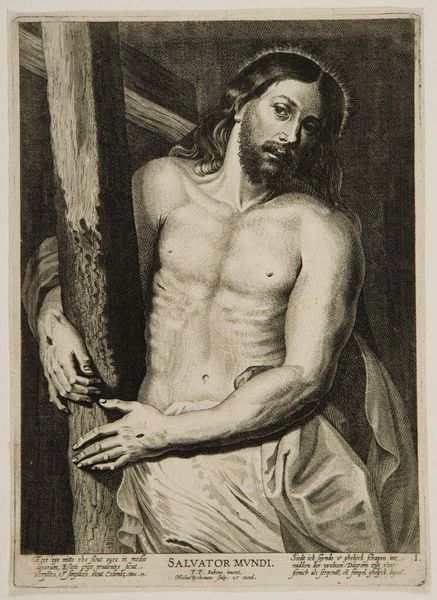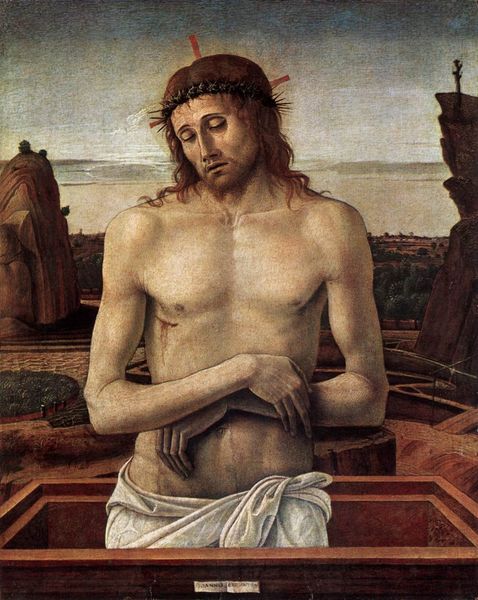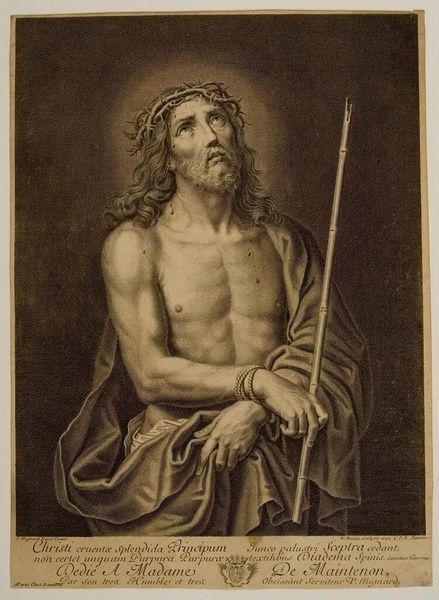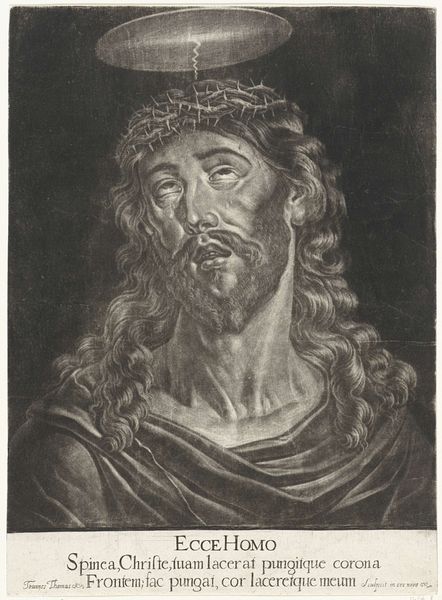
oil-paint
#
portrait
#
allegory
#
oil-paint
#
figuration
#
11_renaissance
#
oil painting
#
history-painting
#
northern-renaissance
#
nude
#
realism
Copyright: Public domain
Albrecht Durer made this 'Ecce Homo', or 'Behold the Man,' using oil paint, likely applying it in thin layers to build up the subtle gradations of skin tone and the stark contrast between light and shadow. Oil painting, as a medium, lends itself to highly finished surfaces, a quality Durer exploits to its fullest. The smooth, almost porcelain-like rendering of flesh emphasizes Christ’s vulnerability, but also the technical skill required to create such an illusion. The production of oil paint itself was no small matter; pigments had to be carefully ground and mixed with oil, a labor-intensive process reflecting the value placed on artistic materials during the Renaissance. Ultimately, Durer’s mastery of oil paint serves not just to depict a religious scene, but also to display his own virtuosity, elevating the status of the artist as a skilled maker. By focusing on the materiality and making of 'Ecce Homo,' we can appreciate how Durer merged craft and fine art to convey deeper meaning.
Comments
No comments
Be the first to comment and join the conversation on the ultimate creative platform.
